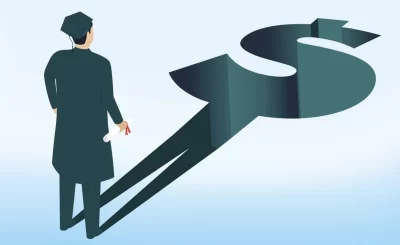Many lenders provide flexible payment options. Graduated repayment plans start with low payments and gradually increase every two years to cover loans in 10 years; income-driven plans calculate payments based on income and expenses.
Loan forgiveness may be available to those demonstrating financial hardship, while other strategies for managing student debt include making more than the minimum monthly payment, budgeting carefully and consolidating or refinancing loans.
Paying Off Your Loans Early
Skipping student loan bills is never wise unless it’s due to an emergency situation; otherwise it could hurt both your credit score and ability to secure other types of loans like mortgages or auto loans.
If you find yourself struggling financially, make contact with your loan servicer immediately. There may be options available such as reduced payments and deferments to delay repayments. Some borrowers may even qualify for income-driven repayment forgiveness which reduces monthly payments while counting toward loan cancellation.
If you can afford higher monthly payments, making extra payments may help to pay off debt faster and reduce interest costs. While this strategy works with all loan repayment plans, standard repayment is most efficient in this respect. Be aware that this strategy requires enough income for other expenses such as emergency savings funds, retirement or down payments on homes.
Making Extra Payments
If it fits within your financial plan and goals, paying extra on loans could help speed up debt reduction. Simply instruct your loan servicer to apply the payment directly toward principal balance.
The federal government offers various loan repayment plans, such as Standard, Graduated and Extended plans as well as income-driven options with monthly payments that begin low but increase with time. Many of these plans allow loan forgiveness after 20 or 25 years.
To explore how different repayment plans would impact your payments and total interest costs, visit the Education Department’s Loan Repayment Calculator. It may also be wise to sign up for direct debit payment which can save 0.25% off your interest rate and ensure accurate application of payments – if in doubt regarding how your servicer has applied payments directly reach out and resolve it quickly!
Refinancing Your Loans
Many borrowers can refinance their student loans to obtain lower interest rates and shorter repayment periods, though it’s essential that you carefully consider this decision in light of your budget.
Private lenders generally require applicants with excellent credit and secure income to qualify for refinancing through them, in addition to passing a hard credit check that could temporarily lower your score by several points.
Students may want to consider alternatives like direct consolidation, income-driven repayment plans and loan forgiveness as possible ways of lowering monthly payments but potentially lengthening debt terms and costing more in total interest charges.
Paying Off Your Loans in Full
Paying off student loans completely may be the ideal solution to decreasing debt load; however, you should carefully consider whether this would increase monthly expenses to the point that they interfere with other foundational financial goals such as emergency savings and retirement planning.
Reducing debt-to-income ratio may improve your ability to qualify for lower mortgage and consumer loan interest rates in the future. When making additional payments, make sure your student loan servicer applies them against your principal balance and not simply current balance owed on billing statements – you can do this either online or by calling them. Biweekly payments may speed your payoff; however they may not always be available with all repayment plans.










